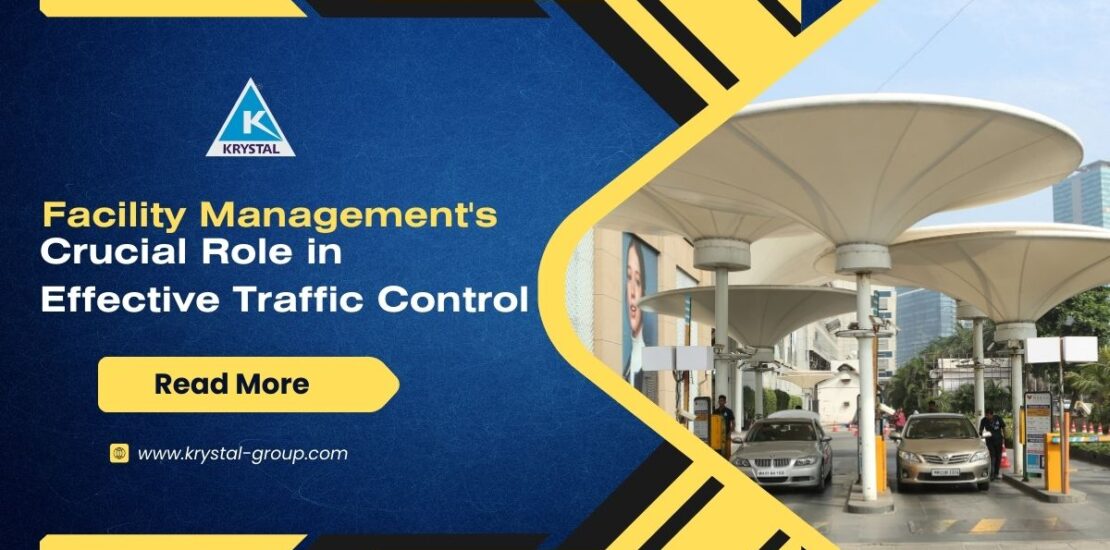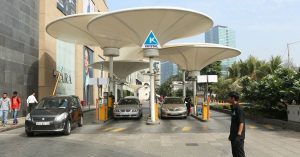- March 29, 2024
- Posted by: admin
- Category: Facility Management Services

Introduction:-
In the bustling urban landscape, the seamless functioning of traffic control systems is paramount for ensuring smooth vehicular movement and preventing gridlocks. One often overlooked but critical factor in this equation is Facility Management. Let’s delve into how Facility Management significantly impacts traffic control:
1. Infrastructure Maintenance:
Effective facility management plays a pivotal role in maintaining and upgrading the infrastructure crucial for traffic control. From traffic lights to road signs, regular inspections and prompt repairs ensure that the system operates optimally, reducing the risk of malfunctions that can lead to traffic disruptions.

2. Facility Management Integration:
Facility managers are at the forefront of adopting and integrating smart technologies into traffic control systems. With the advent of IoT and AI, sensors and cameras can be strategically placed to monitor traffic patterns, enabling real-time adjustments to signal timings and detours. This data-driven approach enhances traffic flow efficiency.
3. Emergency Preparedness:
Facility managers are responsible for devising and implementing emergency response plans. In the event of accidents, breakdowns, or unforeseen circumstances, a well-prepared facility management team can swiftly coordinate with relevant authorities to manage traffic diversions, minimizing disruptions and ensuring public safety.
4. Traffic Control Analysis:
Through regular data collection and analysis, facility managers can identify patterns and bottlenecks in traffic flow. This information is invaluable for making informed decisions on infrastructure improvements, signal optimization, and road expansions, ultimately enhancing the overall traffic control strategy.
5. Sustainable Practices:
Facility management embraces sustainability in infrastructure practices. Implementation of eco-friendly initiatives, such as energy-efficient traffic signals and environmentally conscious road construction, not only contributes to a greener environment but also helps in reducing operational costs in the long run.
6. Regular Maintenance Schedules:
A proactive approach to maintenance is essential for preventing unexpected failures in traffic control systems. Facility managers ensure that routine inspections and maintenance schedules are strictly adhered to, minimizing the chances of sudden breakdowns that can cause traffic chaos.
7. Stakeholder Collaboration:
Effective traffic control involves collaboration between various stakeholders, including government bodies, law enforcement agencies, and private enterprises. Facility managers act as liaisons, fostering communication and coordination among these entities to implement cohesive traffic management strategies.
8. User-Friendly Infrastructure:
Facility managers focus on creating user-friendly traffic infrastructure. From well-designed pedestrian crossings to accessible bike lanes, these considerations enhance overall traffic control by accommodating diverse modes of transportation and ensuring the safety of all road users.
9. Facility Management Solutions:
Through strategic planning and resource optimization, facility managers contribute to cost-efficient traffic control solutions. This includes prioritizing projects based on urgency and leveraging technology to maximize the impact of limited resources.
10. Community Engagement:
Facility managers engage with the local community to gather feedback on traffic-related issues. This community-centric approach helps in tailoring traffic control strategies to address specific needs and concerns, fostering a sense of shared responsibility for traffic management.
Conclusion:-
In conclusion, Facility Management is an integral component of effective traffic control. By focusing on infrastructure maintenance, technology integration, emergency preparedness, and community engagement, facility managers play a key role in ensuring that our roads remain safe and traffic flows smoothly. As urban areas continue to grow, the importance of facility management in sustaining efficient traffic control systems cannot be overstated.

